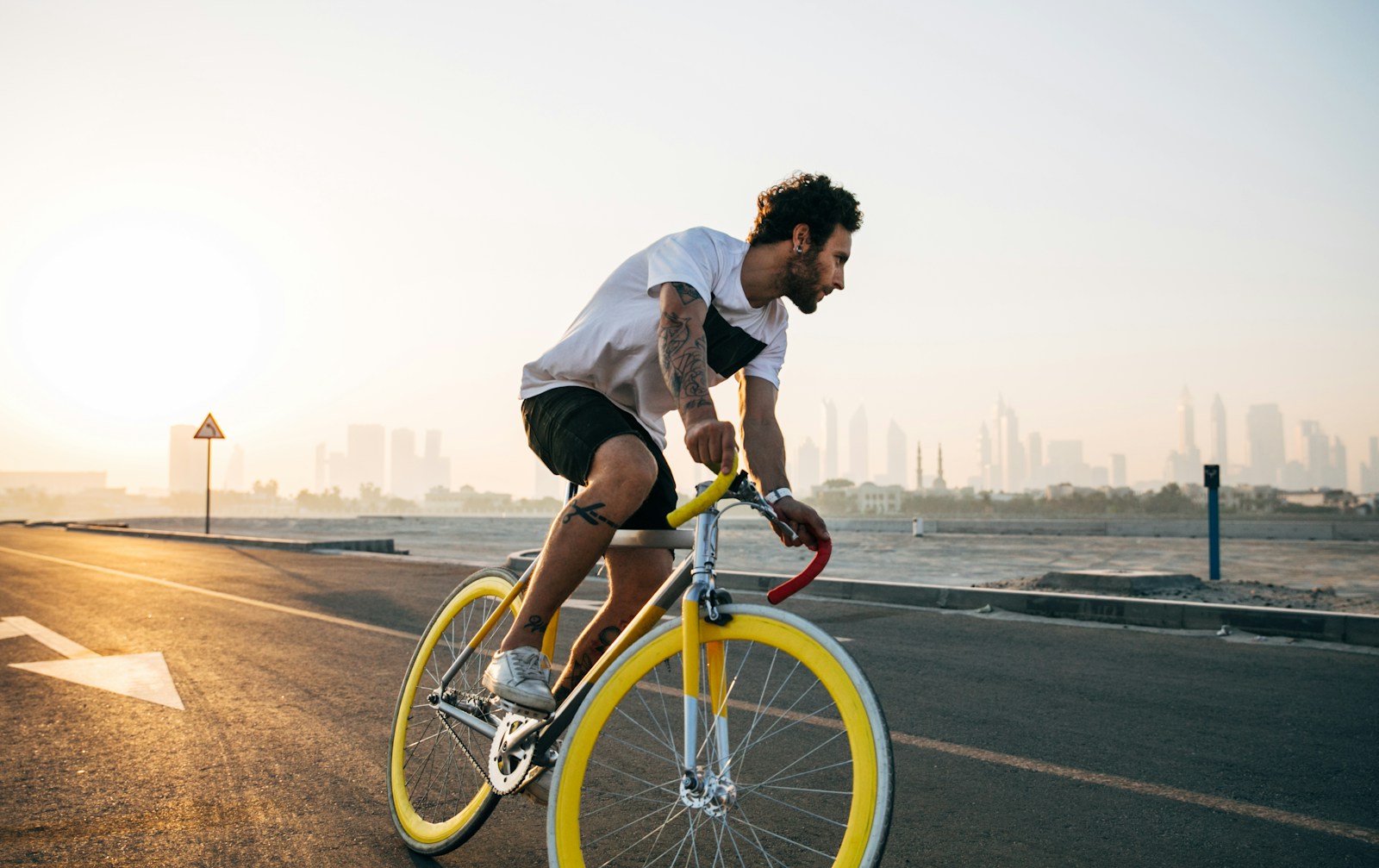How Do You Say ‘Ride a Bike’ in Spanish: Essential Phrases for Cyclists
Imagine you’re on a sunny vacation in Spain, eager to explore the charming cobblestone streets and scenic countryside. You spot a bike rental shop and think, “This is perfect!” But as you approach the counter, you’re hit with a sudden realization: you don’t know how to ask for a bike in Spanish. Your excitement turns into a moment of panic.
Don’t worry, we’ve all been there. Learning a few key phrases can make your travel experiences so much smoother. In Spanish, “ride a bike” translates to “montar en bicicleta” or “andar en bicicleta”. Knowing this simple phrase can open up a world of adventure and make you feel more connected to the local culture.
Basic Translation: “Andar en bicicleta”
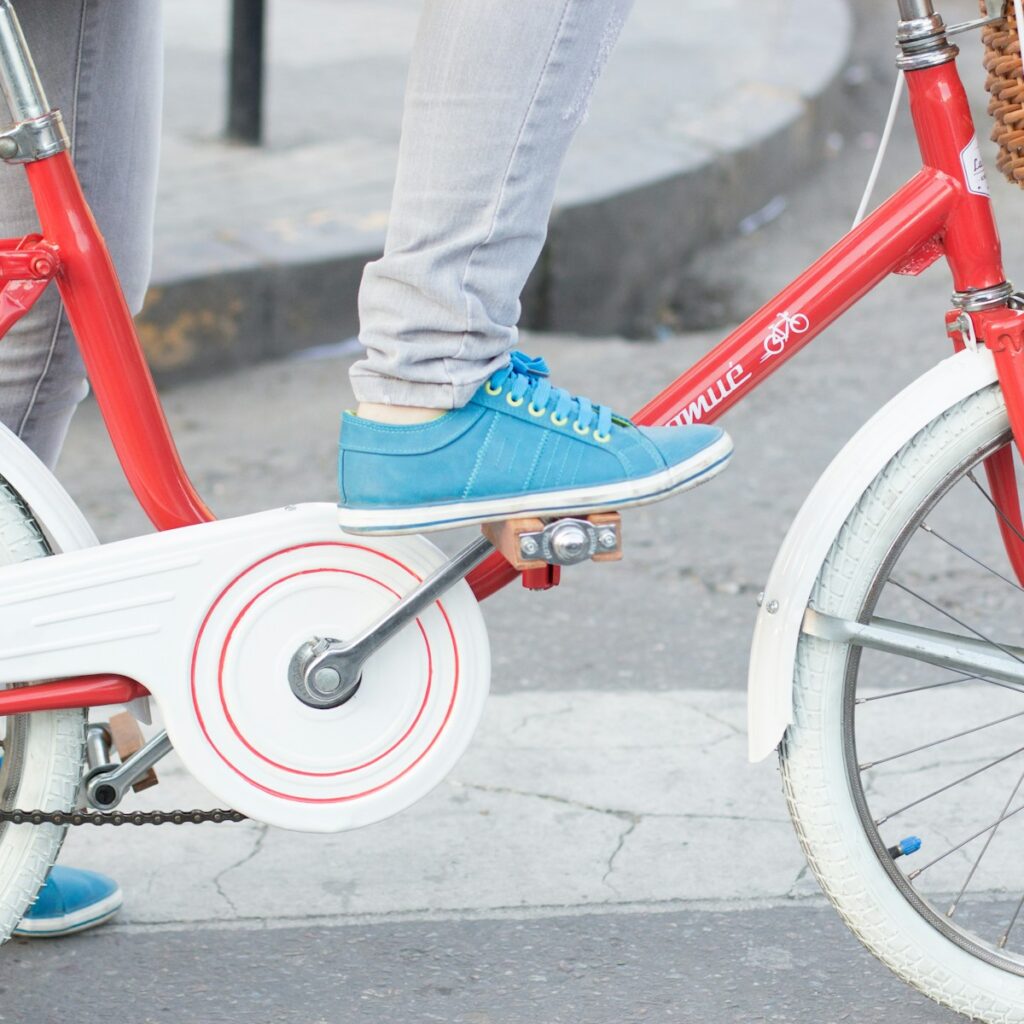
Ever wondered how to say “ride a bike” in Spanish? It’s “andar en bicicleta.” Let’s break it down so you can master this phrase and impress your friends or locals next time you’re in a Spanish-speaking country.
Breaking Down the Phrase
Understanding the components of “andar en bicicleta” can help you use it more confidently.
“Andar” (to ride/walk)
“Andar” means “to ride” or “to walk.” It’s a versatile verb used for various actions, like riding a bicycle or simply walking. Think of it as your go-to word for getting from point A to point B.
“En” (on/in)
“En” is a preposition meaning “on” or “in.” It indicates the mode of transportation or location. In our phrase, it connects your action (“andar”) to the object (“bicicleta”).
“Bicicleta” (bicycle)
“Bicicleta” means “bicycle.” This one’s straightforward. If you’ve got a bike, you’ve got a bicicleta.
Pronunciation Guide
Getting the pronunciation right can make a world of difference. Here’s how to say it:
Spanish Word | Pronunciation |
|---|---|
Andar | ahn-DAHR |
En | en |
Bicicleta | bee-see-KLEH-tah |
Practice these a few times, and you’ll sound like a natural.
Common Variations of “Ride a Bike” in Spanish
Depending on the context, you might want to switch up the phrase. Here are some common variations:
Phrase | Meaning |
|---|---|
Montar en bicicleta | To ride a bicycle |
Ir en bicicleta | To go by bicycle |
The next time you’re gearing up for a biking adventure in a Spanish-speaking country, you’ll know exactly how to say it. Happy riding!
Using “Andar en bicicleta” in Sentences

Learning how to say “ride a bike” in Spanish, specifically andar en bicicleta, opens new doors. Whether you’re exploring Spain or any Spanish-speaking country, this phrase comes in handy.
Present Tense Examples
The present tense is all about what’s happening now. Let’s see how you can use andar en bicicleta in daily life.
Imagine you’re in a vibrant park in Madrid. You might say, “Yo ando en bicicleta por el parque”, which means “I ride a bike in the park.”
Past Tense Examples
Talking about past adventures? Use these past tense forms of andar en bicicleta.
Think back to a family vacation. You might recall, “Nosotros anduvimos en bicicleta alrededor del lago”, or “We rode a bike around the lake.”
Future Tense Examples
Planning your future rides? Here’s how to talk about them using andar en bicicleta.
Planning a weekend trip? Say, “Ellos andarán en bicicleta por la montaña”, or “They will ride a bike through the mountain.”
Imperative (Command) Forms
Need to tell someone to ride a bike? Use the imperative forms of andar en bicicleta.
If a friend looks hesitant, tell them, “¡Anda en bicicleta!”, meaning “Ride a bike!”
Understanding how to use andar en bicicleta in different tenses makes your conversations rich and practical. From sharing past memories to planning future trips, you’ll find plenty of uses for these versatile Spanish phrases.
Alternative Expressions for “Ride a Bike” in Spanish
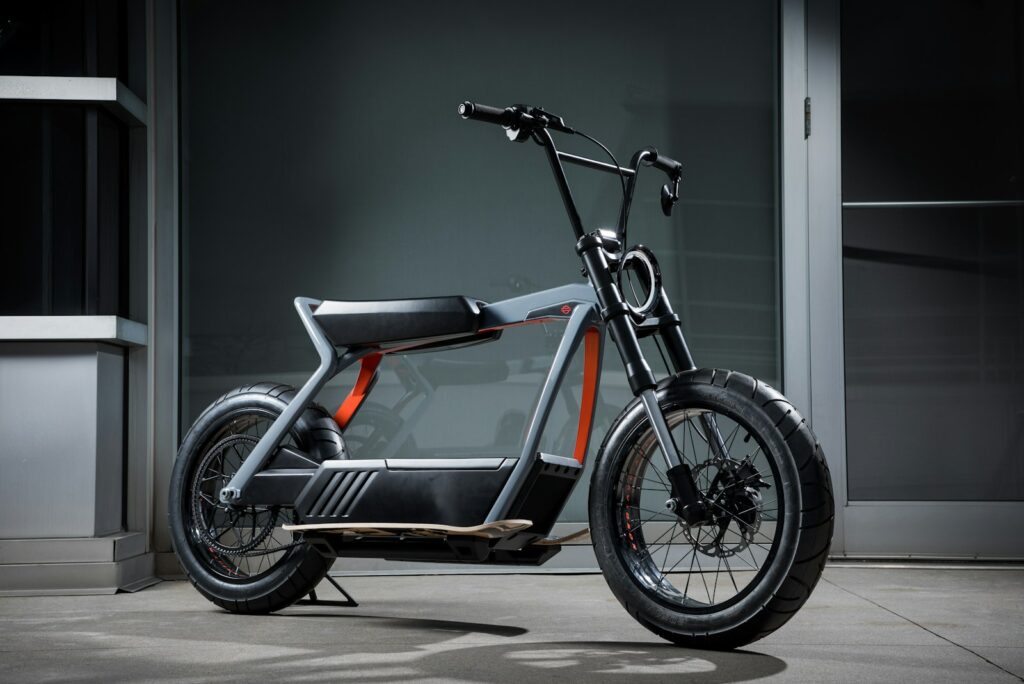
When you want to say “ride a bike” in Spanish, you’ll find two primary expressions that cover different contexts. Let’s jump into both and how they’re used in various regions.
Montar en bicicleta
Montar en bicicleta translates directly to “ride a bicycle.” You use this phrase to talk about the act of riding. For example, if you want to say, “I love to ride a bike in the park,” you’d say, “Me gusta montar en bicicleta en el parque.” This phrase focuses on the activity itself, making it perfect for when you’re planning leisurely rides or talking about biking as a hobby. It’s especially common in Latin America.
Ir en bicicleta
Ir en bicicleta means “to go by bike.” This phrase is your go-to when you’re talking about traveling to a destination by bicycle. Imagine saying, “I want to go to the park on a bike.” In Spanish, you’d say, “Quiero ir en bicicleta al parque.” This expression emphasizes the journey rather than the act of riding.
Regional Variations
Knowing how these expressions vary regionally can be a game-changer, especially if you’re traveling or speaking with people from different Spanish-speaking areas.
Spain
In Spain, you’ll hear both montar en bicicleta and ir en bicicleta. Whether you’re talking about the activity or the mode of travel, both expressions are widely understood and used.
Latin America
Latin America tends to favor montar en bicicleta for discussing the activity of riding a bike. If you’re in Mexico, Colombia, or Argentina talking about bike riding, you’d be right at home using montar en bicicleta for activities like biking in the park.
Expression | Translation | Use Case | Region |
|---|---|---|---|
Montar en bicicleta | Ride a bicycle | Focus on the act of riding | Latin America |
Ir en bicicleta | Go by bike | Emphasis on the destination | Spain |
Exploring these subtle differences in Spanish not only helps you communicate more effectively but also enriches your travel experiences. Why stick to just one phrase when you can master two and impress the locals with your nuanced understanding?
Whether you’re charting a leisurely ride through a park or planning your route to the nearest café, knowing these expressions will make your biking conversations more robust and relatable.
Essential Vocabulary for Talking About Biking in Spanish
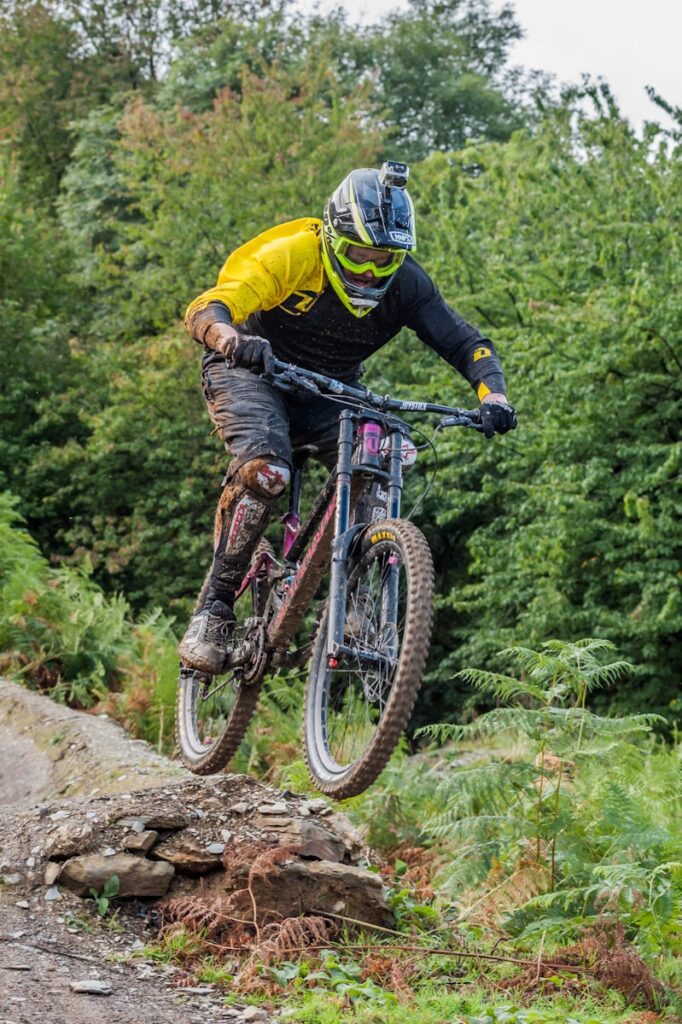
Whether you’re pedaling through the charming streets of Spain or exploring vibrant Latin American trails, knowing the right biking terms can make your adventures more enjoyable. Let’s jump into the essential vocabulary you need to talk about biking in Spanish.
Bicycle Parts (Partes de la Bicicleta)
Understanding the basic components of a bicycle can be helpful, especially if you need repairs or adjustments.
El Manillar (Handlebar)
The manillar (handlebar) steers your bike and gives you control over direction. Imagine riding without it – you’d be all over the place! This vital part ensures you stay on track during your journeys.
Los Pedales (Pedals)
The pedales (pedals) are where the magic happens. They transfer your energy to the bike, propelling you forward. Think of them as the heart of your biking experience – without them, you’d just be standing still.
Las Ruedas (Wheels)
The ruedas (wheels) roll you through your adventures. Robust and reliable, they’re essential for a smooth ride. You’ll appreciate knowing this term when discussing tire issues or exploring rocky paths.
Using the right verbs can enhance your conversations and help you describe actions precisely.
Pedalear (To Pedal)
Pedalear means to pedal. Picture yourself on a bike, generating momentum with each push. This term is crucial when explaining how to ride, especially to beginners or in a cycling class.
Frenar (To Brake)
Frenar is to brake. Essential for safety, this verb helps you discuss slowing down or stopping. Whether you’re exploring traffic or descending a hill, knowing how to communicate this action is vital.
Additional Phrases
To enrich your biking vocabulary, here are more phrases that you might find useful:
Useful Sentences
These sentences show how to use your new vocabulary:
By familiarizing yourself with these terms, you’ll not only enhance your biking-related conversations but also connect more deeply with local cultures, making your biking experiences even more memorable.
Practical Conversations About Biking in Spanish
When traveling, connecting with locals can be exciting, especially if you’re a biking enthusiast. Knowing how to talk about biking in Spanish can open up more engaging and meaningful interactions. Here are some practical conversations to help you get started.
Asking if Someone Knows How to Ride a Bike
So, you’re curious if your new friend knows how to bike. In Spanish, you’d say, “¿Sabes montar en bicicleta?”. This simple question can be a great icebreaker. Imagine sharing biking stories with people you meet!
Inviting Someone to Go for a Bike Ride
You’ve found a fellow biking enthusiast and want to explore together. You can invite them by saying, “¿Quieres ir en bicicleta conmigo?”. Or, if you’re feeling a bit more spontaneous, try “Vamos a montar en bicicleta”. It’s a casual and friendly way to make new connections and enjoy shared adventures.
Talking About Bike Safety
Safety is a priority, whether in your hometown or a new city. Remind your friends by saying, “Ten cuidado al montar en bicicleta”. It’s important to ensure everyone’s safety. You can also add, “Asegúrate de llevar casco”, which reminds them to wear a helmet. These phrases show you care.
Discussing Bike Preferences
Talking about your bike preferences or asking others about theirs can be fun. You might ask, “¿Qué tipo de bicicleta prefieres?”. Whether mountain biking or road cycling, discussing these interests can bring you closer together. Share what you enjoy by saying, “Me encanta montar en bicicleta de montaña” (I love mountain biking).
Here’s a quick reference table to help with these phrases:
English | Spanish |
|---|---|
Do you know how to ride a bike? | ¿Sabes montar en bicicleta? |
Do you want to go for a bike ride with me? | ¿Quieres ir en bicicleta conmigo? |
Let’s go for a bike ride | Vamos a montar en bicicleta |
Be careful when riding a bike | Ten cuidado al montar en bicicleta |
Make sure to wear a helmet | Asegúrate de llevar casco |
What type of bike do you prefer? | ¿Qué tipo de bicicleta prefieres? |
I love mountain biking | Me encanta montar en bicicleta de montaña |
When you integrate these phrases into your conversations, you’ll find that biking through new places has a whole new dimension. Whether asking about biking skills, inviting someone to ride, stressing safety, or discussing preferences, you’re ready to engage and explore.
Common Phrases and Expressions for Biking in Spanish
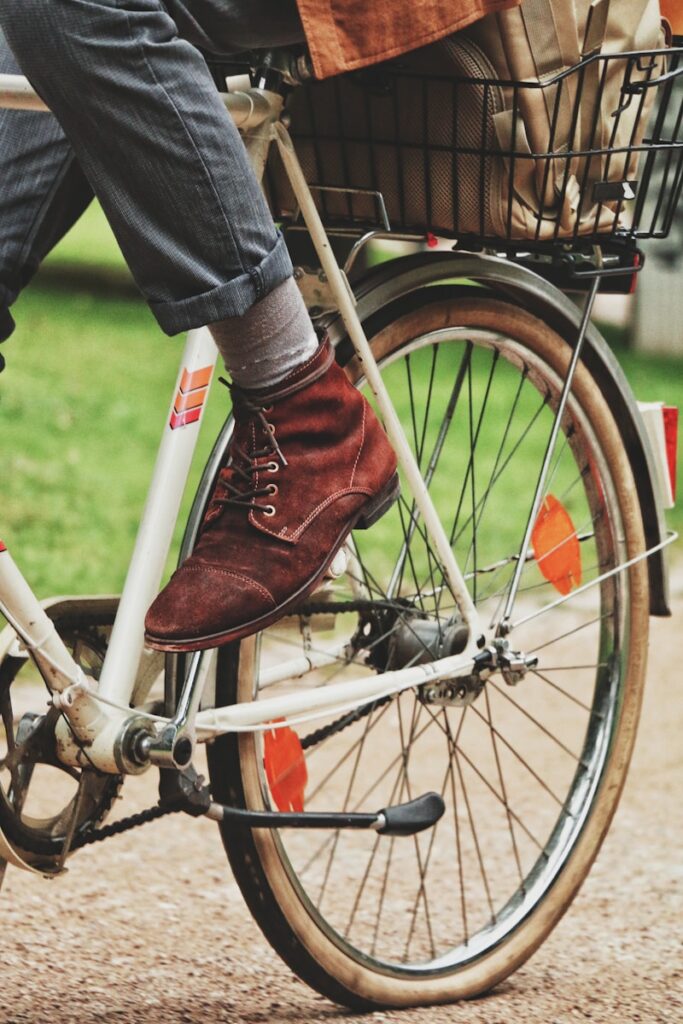
Exploring Spanish phrases for biking can enrich your travel and language experience. Knowing how to discuss biking can be a great icebreaker and a way to connect with locals. Here are some fantastic phrases to get you started.
“Dar un paseo en bicicleta” (To Go for a Bike Ride)
Imagine you’re in a charming Spanish town, and a local friend invites you for a leisurely bike ride along cobblestone streets and scenic landscapes. This is where you’d use “dar un paseo en bicicleta”. It captures the essence of a relaxed, recreational ride, perfect for sunny weekends or exploring new areas.
Example Usage:
“¿Quieres dar un paseo en bicicleta por el parque?”
Translation: “Do you want to go for a bike ride in the park?”
Contextual Table:
Situation | Spanish Phrase | Translation |
|---|---|---|
Leisurely weekend ride | Quieres dar un paseo en bicicleta? | Do you want to go for a bike ride? |
Exploring a new neighborhood | Nos gusta dar un paseo en bicicleta. | We like to go for bike rides. |
“Aprender a andar en bicicleta” (To Learn to Ride a Bike)
Remember the joy and freedom you felt when you first learned to ride a bike? “Aprender a andar en bicicleta” is that phrase encapsulating this wonderful experience. Whether you’re teaching a child or a friend, this phrase is invaluable.
Example Usage:
“Mi hijo está aprendiendo a andar en bicicleta.” (My son is learning to ride a bike.)
Contextual Table:
Situation | Spanish Phrase | Translation |
|---|---|---|
Teaching a child | Mi hijo está aprendiendo a andar en bicicleta. | My son is learning to ride a bike. |
Encouraging a beginner | Puedes aprender a andar en bicicleta rápido. | You can learn to ride a bike quickly. |
“Ir al trabajo en bicicleta” (To Bike to Work)
Biking to work is not only eco-friendly but also a fantastic way to stay fit. If you’re in a Spanish-speaking country and want to discuss this daily activity, you’d say “ir al trabajo en bicicleta”. This phrase emphasizes the practical aspect of biking as transportation.
Example Usage:
“Prefiero ir al trabajo en bicicleta para mantenerme en forma.” (I prefer to bike to work to stay in shape.)
Situation | Spanish Phrase | Translation |
|---|---|---|
Discussing daily routine | Prefiero ir al trabajo en bicicleta. | I prefer to bike to work. |
Emphasizing eco-friendly travel | Es mejor para el medio ambiente ir al trabajo en bicicleta. | It’s better for the environment to bike to work. |
Incorporating these phrases into your conversations can make your interactions more engaging and authentic. So, why not take your Spanish language skills to the next level by integrating these convenient and practical biking expressions?
Conclusion: Mastering “Ride a Bike” in Spanish
Learning how to say “ride a bike” in Spanish can truly enrich your travel experiences. Whether you’re planning a leisurely ride with friends, helping someone learn to bike, or discussing your daily commute, these phrases will come in handy.
By using expressions like “dar un paseo en bicicleta” and “ir al trabajo en bicicleta,” you’ll connect more deeply with locals and enjoy more authentic interactions. So next time you hop on a bike in a Spanish-speaking country, you’ll feel more confident and engaged. Happy biking!
Frequently Asked Questions
What are essential Spanish biking phrases?
Key phrases include “dar un paseo en bicicleta” (to go for a bike ride), “aprender a andar en bicicleta” (to learn to ride a bike), and “ir al trabajo en bicicleta” (to bike to work).
How do you say “to go for a bike ride” in Spanish?
You say “dar un paseo en bicicleta.”
What does “aprender a andar en bicicleta” mean?
It means “to learn to ride a bike” in Spanish.
How do you say “to bike to work” in Spanish?
You say “ir al trabajo en bicicleta.”
Why should I learn Spanish biking phrases?
Learning these phrases helps you engage more authentically with locals and enhance your travel experience, especially during biking adventures.
Can these phrases help in practical scenarios?
Yes, you can use them to invite someone for a bike ride, teach someone to ride a bike, or discuss biking as a daily transportation option.
